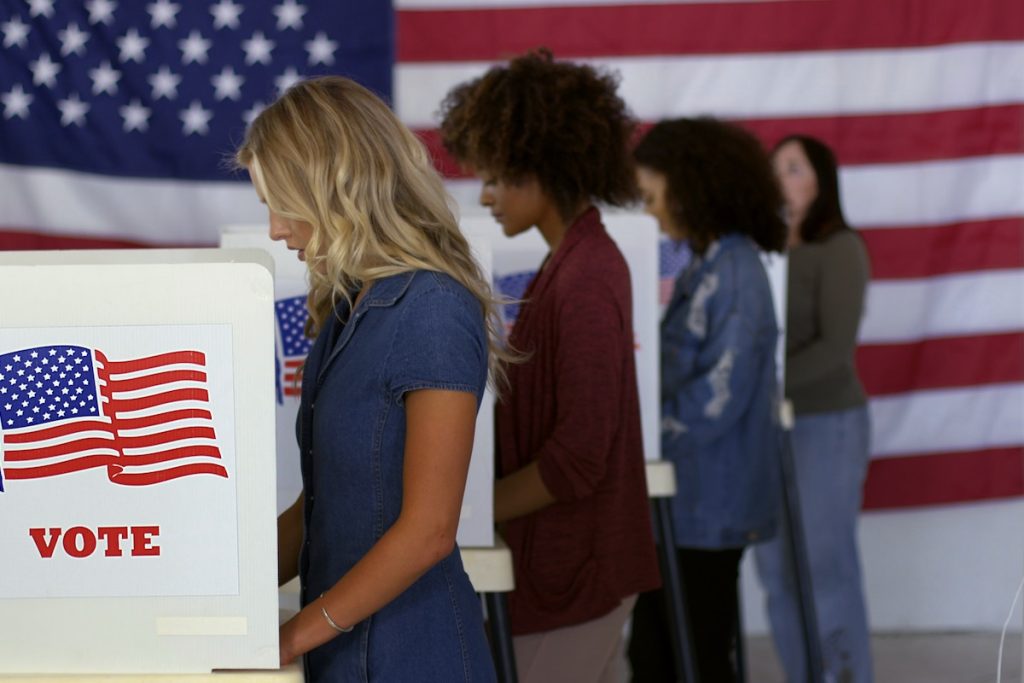As Election Day nears, more than four million North Carolinians have voted.
That’s more than half of the eligible voters throughout the state, according to the North Carolina State Board of Elections (NCSBE).
Despite this, Karen Brinson Bell, executive director of NCSBE, said that more people should get out to the polls on Election Day, Nov. 5, and vote.
“This election is not decided. There are still a lot of voters who can come out, vote and know that your voice will be heard and that your vote will be counted,” Bell said during a press conference Monday morning.
She emphasized having a polling plan, expecting traffic on Election Day and knowing what to expect regarding the results timeline. Here are eight other things to know:
1. Know your polling place
This Tuesday, more than 2,650 polling places — 243 of which are in Mecklenburg — will be open from 6:30 a.m. to 7:30 p.m.
Voters in line by 7:30 p.m. will be permitted to cast a ballot.
To find your polling place, use the Voter Search tool on the State Board’s website, ncsbe.gov.
Voters in the Charlotte area can get free transportation to the polls on Election Day through CATS.
2. Preview your sample ballot
Being familiar with ballot choices can help a voter’s experience go more smoothly.
Sample ballots will look just like Election Day ballots and give voters an opportunity to research their choices in advance.
Voters can use the State Board’s Voter Search tool to find their sample ballot by scrolling down to the “Your Sample Ballot” section.
3. Bring a valid form of identification
North Carolina residents will be asked to provide a photo ID when voting in the 2024 general election. With few exceptions, like for those with a religious objection or a natural disaster within 100 days of the election, every voter must provide ID to vote.
North Carolina residents can get a free ID from their county board of elections or the N.C. Division of Motor Vehicles.
Voters without a photo ID can either fill out a form explaining why they cannot show ID or show their ID at their county board of elections office by Nov. 24 by 5 p.m.
More information can be found at BringItNC.gov.
4. Voter registration is required
Voters must be registered in order to vote, and registration is generally not allowed on Election Day.
However, voters who became eligible after the regular voter registration deadline on Oct. 11—due to either becoming a U.S. citizen or having rights restored after a felony conviction—can still register on Election Day.
5. Absentee ballots must be dropped off by 7:30 p.m. on Election Day
Bell said absentee ballots should not be mailed at this point in the election. The North Carolina State Board of Elections announced that mail-in ballots should have been postmarked by Oct. 31.
“Absolutely, positively, do not mail your ballot at this point. It will not make it in time to be counted,” Bell said during the press conference.
Instead, absentee ballots can be dropped off in person at an individual’s county board of elections office during business hours the day before the election or on Election Day, before 7:30 p.m.
Voters registered in the 25 counties of the Helene disaster area in western North Carolina may return absentee ballots to any elections office in the state. Once returned, ballots will be kept secure and delivered to the voter’s county board of elections for processing.
Voters who requested an absentee ballot but have not returned it yet may instead vote in person if they choose to. Voters who do this should discard their absentee ballot — there is no need to bring it to a polling place.
6. In-person voting assistance is allowed
Voters in need of assistance may bring an eligible person —a legal guardian, spouse, parent, grandparent, sibling, child, grandchild, mother- or father-in-law, son- or daughter-in-law, stepparent, or stepchild — to help with entering and exiting a polling place.
Those eligible can also help a voter with completing a ballot according to the voter’s instructions.
Election officials may also assist voters.
People assisting voters when completing ballots may not influence a voter’s choices.
Curbside voting is also available for voters who cannot enter the voting site.
7. Beware of voter intimidation
State laws in North Carolina prohibit intimidation or interference with voters, including preventing access to a voting place.
It is also a crime to interfere with election officials carrying out their duties.
Penalties for violations include prison time, a fine or both.
Voters who have been harassed or intimidated should notify an election official immediately.
8. Election results
Election results will be posted on the State Board’s website, on the Election Results Dashboard.
Voters can also view the Election Night Reporting Timeline for information on when the public can expect unofficial results on election night.
